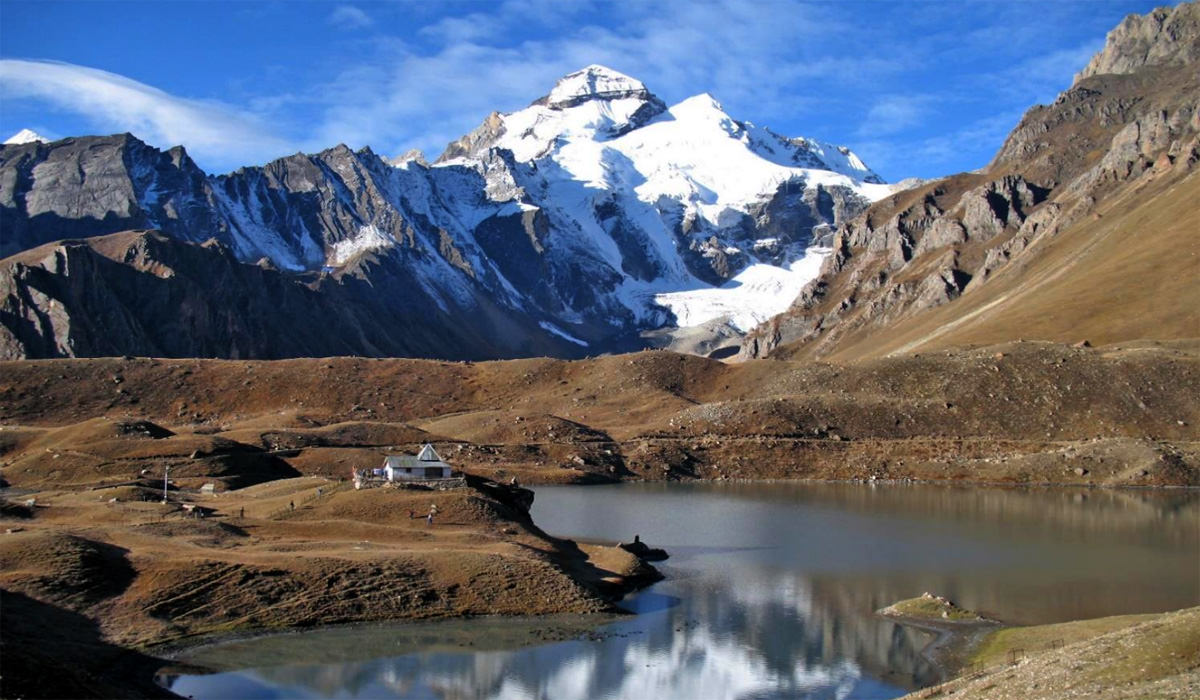A Comprehensive Guide to the Adi Kailash and Om Parvat Yatra
Neha Rawat . Follow
7 months ago
Embark on a profound spiritual odyssey through the majestic peaks of Uttarakhand as we delve into the intricate tapestry of mythology, spirituality, and natural beauty that defines the Adi Kailash and Om Parvat Yatra. This comprehensive guide is crafted to offer pilgrims and adventure seekers alike a detailed roadmap to undertake this transformative journey in 2024.

Adi Kailash: The Sanctum of Shiva
Mythological Significance
Adi Kailash, often hailed as the Mount Kailash of India, is steeped in ancient mythology and revered as the earthly abode of Lord Shiva and Goddess Parvati. According to sacred texts like the Skanda Purana, it is believed that Lord Shiva halted at Adi Kailash during his divine journey, bestowing upon it unparalleled sanctity.
Spiritual Significance
Devotees flock to Adi Kailash from far and wide, drawn by its profound religious significance and the promise of divine blessings. For many, this sacred peak represents a pilgrimage of immense spiritual significance, akin to embarking on a journey to Mount Kailash in Tibet.
Om Parvat: The Symbol of Cosmic Consciousness
Unique Feature
Om Parvat, situated along the route to Adi Kailash, captivates pilgrims with its extraordinary natural formation: the 'Om' symbol etched onto its surface. This divine symbol, representing the essence of creation and cosmic consciousness, serves as a beacon of spiritual enlightenment amidst the Himalayan expanse.
Pilgrimage Experience: Planning Your Yatra
Best Time to Visit
To optimize the pilgrimage experience, it is advisable to plan the yatra between May and September, when the weather remains conducive to trekking and the risk of adverse conditions such as landslides and snowstorms is minimized.
Duration and Itinerary
Crafting a well-rounded itinerary is essential for a fulfilling yatra experience. Allocate approximately 13 to 14 days for the journey, accounting for travel time, trekking, rest periods, and acclimatization breaks.
Altitude and Physical Fitness
As the trek involves ascending to high altitudes, physical fitness and acclimatization are paramount. Prioritize cardiovascular endurance, strength training, and altitude training to mitigate the risks associated with altitude sickness.
Route and Transportation
Navigating the trekking route from Delhi to Adi Kailash and Om Parvat requires careful planning. Consider transportation options such as trains, buses, and private vehicles, and familiarize yourself with road conditions and logistical challenges along the way.
Permits and Documentation
Ensure compliance with regulatory requirements by obtaining Inner Line Permits for the Adi Kailash trek. Prepare all necessary documentation in advance and liaise with local authorities or tour operators for guidance on permit procurement.
Exploring Sacred Sites: Must-Visit Destinations
Kali Mandir, Kalapani
Nestled amidst the serene beauty of Kalapani, the Kali Mandir offers devotees a tranquil sanctuary to seek blessings and divine grace from the fierce goddess Kali.
Parvati Mukut and Pandav Parvat
Ascend to the majestic peaks of Parvati Mukut and Pandav Parvat, where panoramic vistas of the Himalayan landscape await. Immerse yourself in the awe-inspiring beauty and profound spiritual energy of these sacred landmarks.
Pandava Fort, Kuti Village
Journey back in time as you explore the ancient ruins of Pandava Fort in Kuti Village, a testament to the rich mythology and cultural heritage of the region.
Ved Vyas Cave
Pay homage to the venerable Sage Ved Vyas at the sacred Ved Vyas Cave, believed to be the site where the Mahabharata was composed. Experience a sense of reverence and spiritual introspection amidst the serene surroundings of this sacred sanctuary.
Gauri Kund
Bask in the tranquil ambiance of Gauri Kund, a serene lake nestled at the foot of Adi Kailash. Reflect upon the divinity of nature as you marvel at the crystal-clear waters and pristine beauty of this sacred site.
Om Parvat
Witness the divine manifestation of the 'Om' symbol etched onto the surface of Om Parvat, symbolizing the eternal truths of Hindu philosophy and the cosmic consciousness that pervades all of existence.
Frequently Asked Questions
Q1: Can we climb Adi Kailash and Om Parvat?
A1: No, climbing Adi Kailash and Om Parvat is not permitted due to their religious significance. Devotees can witness these sacred peaks from designated viewpoints along the yatra route.
Q2: What is the best time to undertake the yatra?
A2: The best time to visit Adi Kailash and Om Parvat is between May and September, when the weather is favorable for trekking and the risk of adverse conditions is minimal.
Q3: Are permits required for the yatra?
A3: Yes, Inner Line Permits are required for the Adi Kailash trek. Pilgrims should obtain permits in advance to ensure compliance with regulatory requirements.
Q4: Is prior trekking experience necessary for the yatra?
A4: While prior trekking experience is beneficial, it is not mandatory. Pilgrims should focus on physical fitness, acclimatization, and proper preparation to ensure a safe and enjoyable yatra experience.
Conclusion
Embark on a journey of self-discovery and spiritual awakening through the sacred heights of Adi Kailash and Om Parvat. With meticulous planning, reverence, and determination, the yatra promises to be an unforgettable odyssey of divine communion amidst the awe-inspiring grandeur of Uttarakhand's sacred peaks.
Recommended topics
Recommended from Guest Post

Bellissima Hair Salon Phoenix
Discover Beauty and Elegance at Bellissima Hair Salon Phoenix - Your Premier Beauty Salon in Glendale
May 8, 2024
Authentic Custom Cabinetry
Transform Your Kitchen with Stylish Cabinets in Tucson, AZ
April 17, 2024Omair Sheikh



